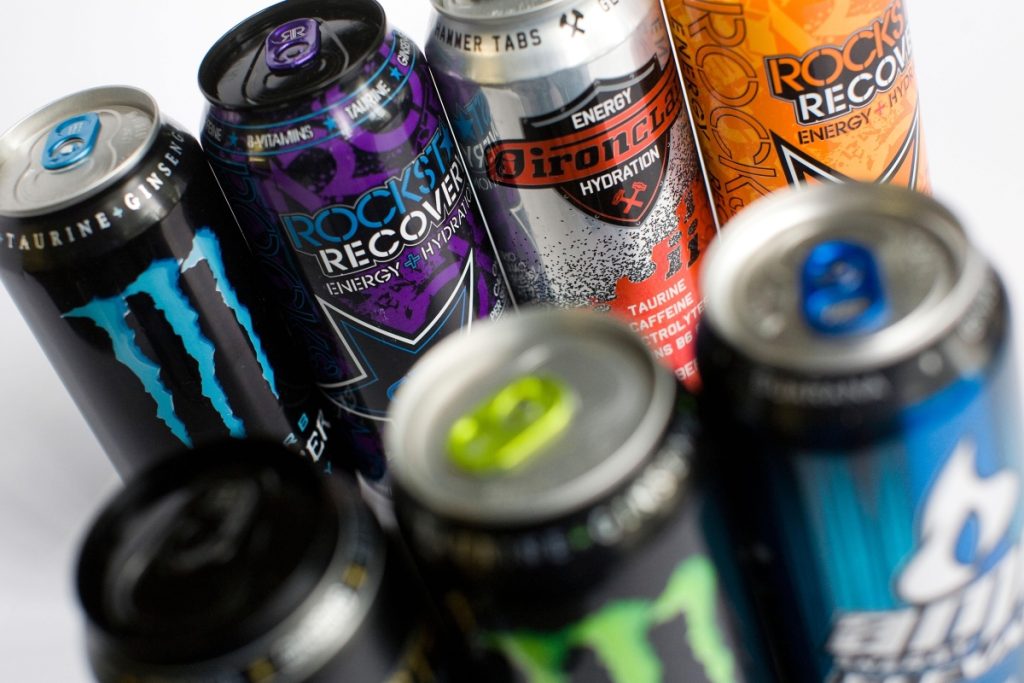Caffeine, Insulin and Strength Training: A Regulatory Relationship?

We all know the benefits caffeine has, whether you get your hit from a hot cup of coffee, a scoop of pre-workout or by slurping on your favourite colour Monster energy drink; caffeine is a powerful stimulant that enhances your performance, but what about it’s relationship with insulin?
One of the effects of caffeine that has been studied extensively is its impact on insulin sensitivity and glycaemic control, especially in people with diabetes. Insulin sensitivity refers to how well the body responds to insulin, a hormone that regulates blood glucose levels. A lower insulin sensitivity means that more insulin is needed to keep blood glucose levels within a normal range, which can increase the risk of developing type 2 diabetes and other metabolic disorders.
Reducing caffeine & insulin sensitivity
Caffeine intake has been associated with a modest loss of fat mass and reduction in urinary creatinine concentrations. However, it has also been shown to reduce insulin sensitivity and prolong the period of high blood glucose levels after a meal. This effect can last for at least a week and is evident up to 12 hours after caffeine administration. Therefore, reducing caffeine intake may have beneficial effects on insulin sensitivity and glycaemic control in the long term.
Strength training can improve insulin sensitivity by increasing muscle mass, which enhances glucose uptake and utilisation by the muscles. Strength training can also reduce body fat, which can lower inflammation and oxidative stress that impair insulin signalling.
One interesting interaction between caffeine intake and strength training is that training while on caffeine can temporarily decrease insulin sensitivity, which primes the body to become even more responsive to nutrient intake afterwards. This means that consuming carbohydrates or protein after a caffeine-enhanced workout can result in greater muscle glycogen replenishment and protein synthesis, which can improve muscle recovery and performance. However, this effect may not be beneficial for people with diabetes or impaired glucose tolerance, who may experience postprandial hyperglycaemia and hyperinsulinemia after consuming caffeine.
Another factor that may influence the relationship between caffeine intake and insulin sensitivity is the type of coffee consumed. Coffee contains not only caffeine but also other bioactive compounds such as chlorogenic acid, trigonelline, and diterpenes, which may have different effects on glucose metabolism. For example, decaffeinated coffee has been found to improve insulin sensitivity in healthy men compared to regular coffee or water. This suggests that some of the non-caffeine components of coffee may have beneficial effects on insulin sensitivity that are masked by the adverse effects of caffeine.
A Monstrous problem?
Something else to consider… most gym-goers will accompany their training session with their favourite can of energy drink, which are highly caffeinated and contain high amounts of sugar, but did you know sugar actually makes caffeine less effective? One of the primary drawbacks of sugar is that it causes a rapid rise and then fall in blood sugar levels, this is known as a sugar crash. A sugar crash can lead to fatigue, hunger pangs and reduced concentration, making the benefits of caffeine less effective.
Another problem with sugar is that it can interfere with the absorption of caffeine in the digestive system. According to a study by Green et al. (2017), adding sugar to coffee reduced the peak plasma concentration of caffeine by 25% compared to black coffee. This means that sugar may reduce the amount of caffeine that reaches the brain and its receptors.

Conclusion
Reducing caffeine intake may improve insulin sensitivity and glycaemic control in the long term, especially for people with diabetes or impaired glucose tolerance. However, caffeine intake may also have some positive effects on muscle recovery and performance when combined with strength training. The type of coffee consumed may also modulate the effects of caffeine on insulin sensitivity. Therefore, individual factors such as health status, exercise habits, and coffee preferences should be considered when deciding on the optimal amount and type of caffeine intake.
Strength Director’s take
I’ve been consuming caffeine in different forms since I started strength training. Everything from quad-shot espresso’s to NOX Pump pre-workout formula, and it’s certainly a powerful substance when used correctly. I’m not one for sugary energy drinks, I have however gone through phases where I’d become almost reliant on drinking one with every training session.
One of the early issues that I faced was the reliance of caffeine for a successful training session. Even now, I don’t perform as well without some form of caffeine in my system in the lead up to a training session. Early on though I consumed a lot more than what I do now, which increased my reliance of it and reduced the effectiveness, in addition to all of the drawbacks that consuming a lot of caffeine has, like the crashes. Another issue I found with large doses of caffeine is that I’d be drinking considerably less water, which comes with it’s own problems.
This large consumption of caffeine led to health issues, I developed hypertension and had to go ‘cold-turkey’ as they say. I wasn’t able to train during this period and it ultimately (thankfully) led to a massive reduction in my use of, and the source of my caffeine. Now, I almost always source my daily dose of caffeine from a couple of cups of coffee which is capped at 3 per day, with an occasional fourth if I’m feeling it.
In terms of the type of caffeine I’ve consumed, and it’s effectiveness, I’ve always had the best results with good old black coffee, in particular cold coffee that tends to hit harder and faster in my experience!
References:
: Johnston KL et al. (2005) Coffee acutely modifies gastrointestinal hormone secretion and glucose tolerance in humans: glycemic effects of chlorogenic acid and caffeine. Am J Clin Nutr 82: 732–739.
: Dewar L et al. (2017) The effect of acute caffeine intake on insulin sensitivity and glycemic control in people with diabetes. Diabetes Metab Syndr 11: S631–S635.
: Niemann MJ et al. (2020) Strength Training and Insulin Resistance: The Mediating Role of Body Composition. J Diabetes Res 2020: 7694825.
: https://www.shapefit.com/diet/coffee-insulin.html
: https://academic.oup.com/ajcn/article/111/2/448/5686860
: Moisey LL et al. (2008) Decaffeinated coffee improves insulin sensitivity in healthy men. Br J Nutr 100: 1046–1054.
: Green B., et al. (2017). The effect of sucrose addition on the pharmacokinetics of caffeine in coffee: A randomized controlled trial. British Journal of Clinical Pharmacology 83(8): 1808-1815.

